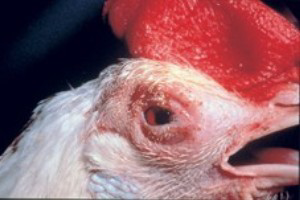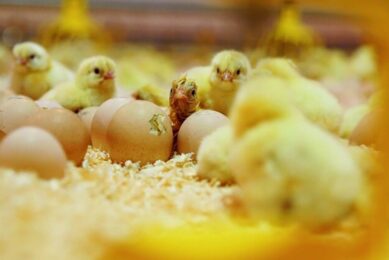Immune responses of poultry to Newcastle disease virus

Abstract: Newcastle disease (ND) remains a constant threat to poultry producers worldwide, in spite of the availability and global employment of ND vaccinations since the 1950s. Researchers have released a paper in a special issue of Developmental & Comparative Immunology dedicated to chicken immunity.
Strains of Newcastle disease virus (NDV) belong to the order Mononegavirales, family Paramyxoviridae, and genus Avulavirus, are contained in one serotype and are also known as avian paramyxovirus serotype-1 (APMV-1). They are pleomorphic in shape and are single-stranded, non-segmented, negative sense RNA viruses.
The virus has been reported to infect most orders of birds and thus has a wide host range. Isolates are characterized by virulence in chickens and the presence of basic amino acids at the fusion protein cleavage site. Low virulent NDV typically produce subclinical disease with some morbidity, whereas virulent isolates can result in rapid, high mortality of birds. Virulent NDV are listed pathogens that require immediate notification to the Office of International Epizootics and outbreaks typically result in trade embargos. Protection against NDV is through the use of vaccines generated with low virulent NDV strains. Immunity is derived from neutralizing antibodies formed against the viral hemagglutinin and fusion glycoproteins, which are responsible for attachment and spread of the virus.
However, new techniques and technologies have also allowed for more in depth analysis of the innate and cell-mediated immunity of poultry to NDV. Gene profiling experiments have led to the discovery of novel host genes modulated immediately after infection.
Differences in virus virulence alter host gene response patterns have been demonstrated. Furthermore, the timing and contributions of cell-mediated immune responses appear to decrease disease and transmission potential. In view of recent reports of vaccine failure from many countries on the ability of classical NDV vaccines to stop spread of disease, renewed interest in a more complete understanding of the global immune response of poultry to NDV will be critical to developing new control strategies and intervention programs for the future.
Developmental & Comparative Immunology Volume 41, Issue 3, November 2013
Darrell R. Kapczynski, Claudio L. Afonso, Patti J. Miller Exotic and Emerging Avian Disease Research Unit, Southeast Poultry Research Laboratory, Agricultural Research Service, Athens, GA United States.
To further access this article please follow the link.
Join 31,000+ subscribers
Subscribe to our newsletter to stay updated about all the need-to-know content in the poultry sector, three times a week. Beheer
Beheer








 WP Admin
WP Admin  Bewerk bericht
Bewerk bericht